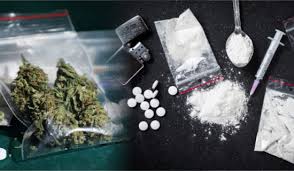
The Kenyan government has intensified its efforts to combat substance abuse by introducing a newly validated screening tool, aimed at identifying and addressing drug-related issues early and effectively across health, education, and community systems.
Developed in collaboration with mental health experts, the tool enables standardized screening for multiple substances including alcohol, opioids, stimulants, and prescription drugs within primary health facilities, schools, and youth centres. It includes age‑appropriate questionnaires and structured guidelines that help professionals spot at‑risk behaviours, refer individuals for counselling, or initiate early intervention programs.
At a launch event in Nairobi, the Cabinet Secretary for Health described the tool as a vital step toward “bridging the gap between prevention and treatment.” She emphasized plans to conduct nationwide training sessions for healthcare providers, teachers, community officers, and youth workers to ensure widespread deployment.
“The goal is simple: identify problems before they worsen, especially among our youth,” she said. “Timely support can save futures and families.” The screening tool will also feed into a national data collection framework, providing insights into evolving drug trends, high‑risk regions, and vulnerable demographic groups. Health officials intend to use this data to inform targeted awareness campaigns, intervention strategies, and policy development.
Mental health organisations and addiction specialists have welcomed the move, citing the need for a uniform diagnostic approach in a landscape fragmented by uneven local response systems. They believe the tool’s rollout could strengthen referral networks—linking patients to inpatient treatment, outpatient therapy, or peer‑support groups as needed.
A pilot phase conducted over recent months in select counties has demonstrated promising results: an increase in early detection rates, paired with greater willingness among affected individuals to seek help when offered assistance.
The government projects national rollout by mid‑2026, targeting both rural and urban areas with high prevalence of drug misuse. Complementary plans include bolstering treatment centers, expanding community‑based recovery programmes, and launching continuous education to curb demand particularly among adolescents.
By combining screening, data‑driven policy, and responsive care, authorities say they are taking a major step toward mitigating the social and health consequences of substance abuse in Kenya.

